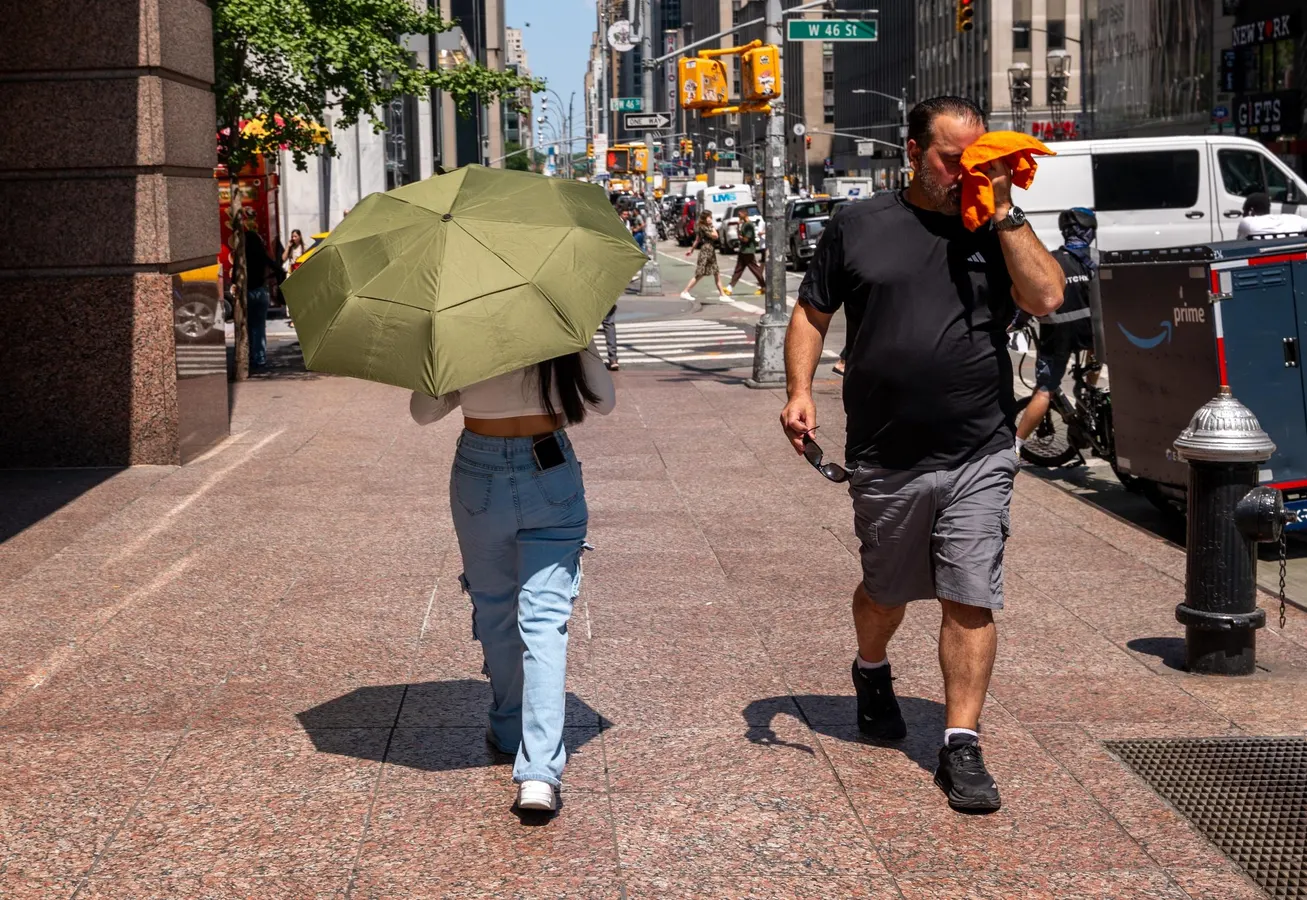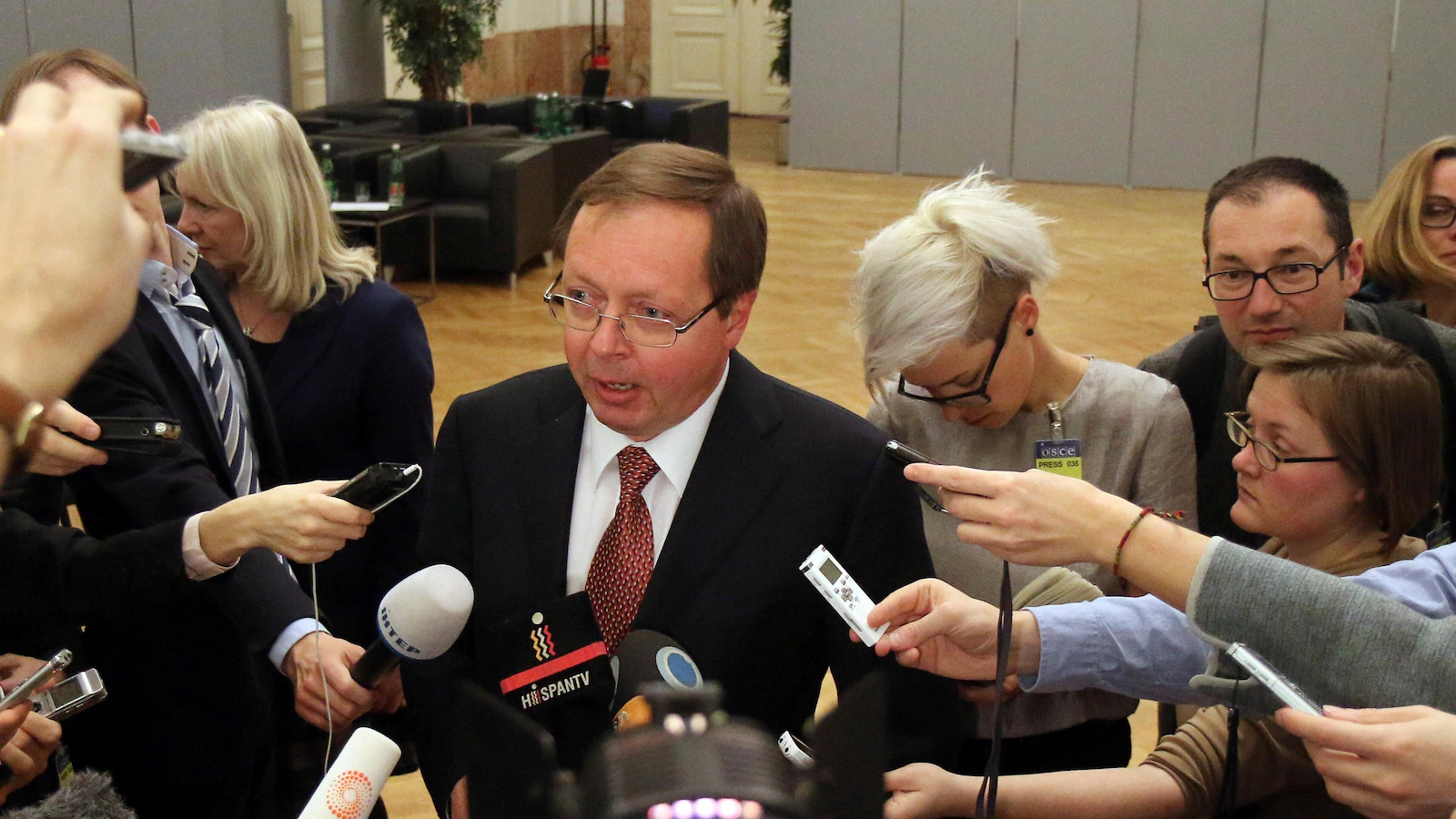By Contributor,Jamie Hailstone,Spencer Platt
Copyright forbes

NEW YORK, NEW YORK – JULY 29: People try to stay cool on the sweltering streets of Manhattan as the region experiences another heatwave on July 29, 2025 in New York City. Temperatures are expected to reach into the high 90s with a heat index well above 100 degrees. (Photo by Spencer Platt/Getty Images)
Getty Images
Cities around the world could save 725,000 lives a year by tackling climate change-related threats to health, according to a new analysis.
A new report from a coalition including the Sustainable Markets Initiative and the Resilient Cities Network, warns cities are at the forefront of a global health crisis exacerbated by climate change.
It says rapidly mounting climate risks to public health include extreme heat, air pollution and flooding.
According to the report, deaths from heat stress and air pollution are set to increase in urban areas more than 20% over this decade, and by 2030 could be more than double those from transport accidents.
In order to mitigate some of these issues, the study calls for a new approach in order to ease pressure on health systems while delivering major health and climate benefits.
The report says simple heat and air quality interventions such as urban greening, cool roofs, active transport, could cut related deaths by 15%.
And short-term measures to improve water, sanitation and hygiene, such as point-of-use water filtration devices, could prevent 57,000 deaths a year, while water infrastructure upgrades could prevent a further 109,000 deaths a year by 2030.
It also claims practical community resilience measures, like early warning systems and awareness campaigns could cut mortality by up to 13% in some cities and often rely on simple, affordable materials.
MORE FOR YOU
“Healthier cities are more prosperous cities, and many of these interventions contribute directly to economic growth,” the report states.
“For example, measures to reduce urban heat can mitigate the effect of heat on labour productivity, which can be up to 50% for moderate intensity work.”
The coalition is now building a blueprint for climate-resilient health and co-developing a practical guide to embedding health equity and prevention directly into climate plans.
Professor Jeannette Ickovics, from the Yale School of Public Health, said the report shows how targeted interventions could transform the health of people living in cities, in an interview.
Professor Ickovics added urban design and community resilience measures could help mitigate the impact of extreme heat, air pollution and other climate-related events, like flooding.
If implemented, she said they could also help save 725,000 lives per year, per year, $70 billion in health care costs, and avoid 15.6 metric tons of carbon dioxide, which is equivalent to the total emissions of a country like Croatia or El Salvador.
“Every single lever for climate is an opportunity to improve the health of both people and the planet,” she told me.
“For example, if we reduce air pollution from greenhouse gas emissions, we reduce the risk of heart attacks, strokes and lung cancers, keeping people healthier and reducing strain on the healthcare system.
“If we promote active transportation, it will in turn will also reduce the risk of obesity and diabetes.”
Professor Ickovics added the private sector also has a lot to gain by investing by investing in sustainable solutions, which will improve the health of their own employees and customer base.
“Climate and health co-benefits are completely intertwined, and by investing in the kinds of interventions we have highlighted in this the report, we all can benefit.”
The chief executive of international healthcare company Bupa, Iñaki Ereño said good health starts long before medical care is needed, including the air we breathe, and the cities we live in, in a statement.
But Ereño added these foundations are increasingly under threat from a changing climate, which is making it harder to stay well and harder for healthcare systems to keep pace.
“By reimagining cities with wellbeing at their core, and working with partners, we can help people stay healthier for longer, reduce health inequalities, and build healthcare systems that are both resilient and sustainable,” he said.
Editorial StandardsReprints & Permissions



